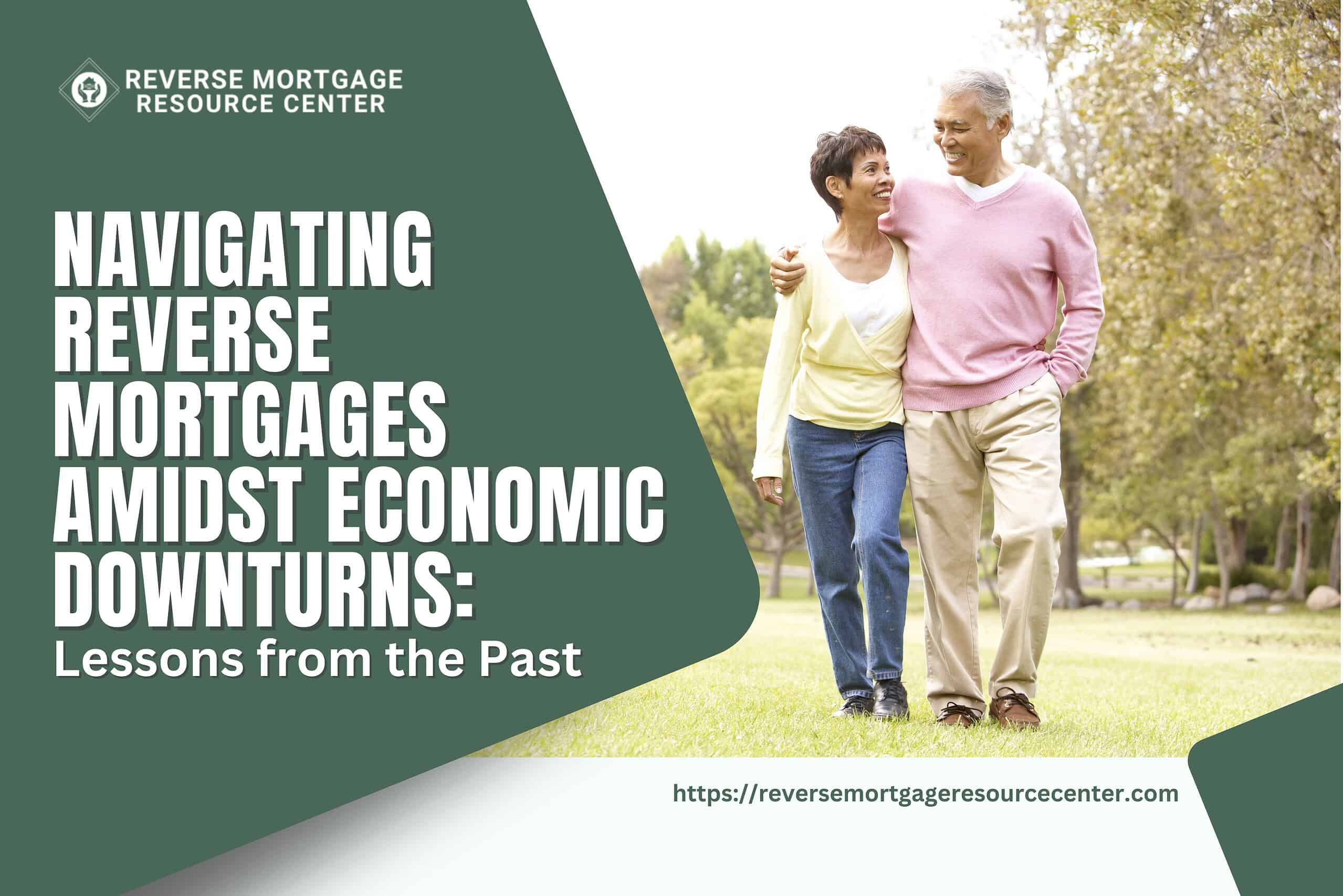Navigating Reverse Mortgages Amidst Economic Downturns: Lessons from the Past
In the realm of retirement planning, economic downturns can pose significant challenges, especially for seniors who rely on fixed incomes to sustain their lifestyles. One financial tool that has gained attention, particularly during tough economic times, is the reverse mortgage. This article delves into the historical data surrounding reverse mortgages and economic downturns, explores strategies for protecting financial stability during challenging times, and gathers insights from experts on navigating economic uncertainties for senior homeowners.
Understanding the Landscape: Historical Data on Reverse Mortgages and Economic Downturns
To comprehend the dynamics of reverse mortgages in the face of economic downturns, it is crucial to examine historical data. Reverse mortgages, designed to allow homeowners aged 62 and older to tap into their home equity, have seen increased popularity during economic downturns as a potential source of funds. The 2008 financial crisis, for instance, witnessed a surge in reverse mortgage applications, reflecting a growing need for financial support among seniors facing declining home values and shrinking retirement portfolios.
Analyzing the performance of reverse mortgages during past economic downturns provides valuable insights into their viability as a financial instrument. Examining factors such as interest rates, home values, and the overall economic climate helps to identify trends and patterns that can guide seniors in making informed decisions about their financial future.
Strategies for Protecting Financial Stability
While reverse mortgages can offer a lifeline during economic downturns, it is essential for seniors to adopt strategic approaches to protect their financial stability. Here are some key strategies to consider:
Diversification of Income Streams: In times of economic uncertainty, relying solely on a reverse mortgage may not be sufficient. Seniors should explore diversifying their income streams through other financial instruments such as annuities, investments, or part-time employment opportunities.
Financial Counseling and Education: Seeking professional financial counseling can provide seniors with a clearer understanding of their financial situation and options. Education on managing expenses, budgeting, and exploring alternative financial products can empower seniors to make informed decisions.
Emergency Fund Preparation: Building and maintaining an emergency fund is crucial, especially during economic downturns. An emergency fund can serve as a safety net, covering unexpected expenses and ensuring that seniors do not exhaust their reverse mortgage funds prematurely.
Regular Monitoring and Adjustment: Economic conditions are dynamic, and seniors should regularly monitor their financial portfolios. Being proactive in adjusting strategies based on changing economic landscapes ensures adaptability and resilience in the face of uncertainties.
Insights from Experts: Navigating Economic Uncertainties for Senior Homeowners
To gain further perspective on navigating economic uncertainties, we turned to experts in the field. Financial advisors and reverse mortgage specialists provide valuable insights that can guide seniors in making informed decisions:
Timely Decision-Making: Seniors should not delay in exploring reverse mortgages if they anticipate economic challenges. Timing is critical. Waiting until a crisis hits may limit the options available to seniors. Being proactive and considering a reverse mortgage when economic indicators suggest potential challenges can be a strategic move.
Consideration of Loan Structures: We would like to emphasize the importance of understanding the different loan structures available. Seniors should carefully consider whether a fixed-rate or adjustable-rate reverse mortgage aligns better with their financial goals. The choice of loan structure can significantly impact long-term financial stability.
Holistic Financial Planning: A reverse mortgage is just one piece of the puzzle. Seniors should integrate it into a broader financial plan that includes income diversification, estate planning, and long-term care considerations.
Impact of Economic Policies: Changes in interest rates, tax policies, and housing market regulations can influence the benefits and risks associated with reverse mortgages. Staying informed about economic policies and their potential implications is crucial for seniors.
Informed Decision-Making: Legal aspects of reverse mortgages can vary, and seniors should consult with legal professionals to ensure they fully understand the terms and conditions. Being informed empowers seniors to make choices that align with their individual needs and goals.
Final Thoughts
In times of economic downturns, seniors facing financial challenges in their retirement need thoughtful strategies to protect their financial stability. Reverse mortgages, when used judiciously, can play a crucial role in providing additional funds and financial security. Analyzing historical data, adopting strategic financial approaches, and seeking insights from experts empower seniors to navigate economic uncertainties and make informed decisions about their financial future. As the landscape evolves, staying informed, proactive, and adaptable remains key for seniors seeking financial peace of mind in their golden years.
REVERSE MORTGAGE RESOURCE CENTER ~LIVE LIFE ON YOUR TERMS~
Our Lending Team has been serving our clients since 2004. We are passionate about serving our clients with integrity to help them achieve their financial goals.







